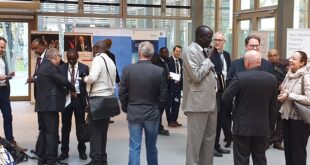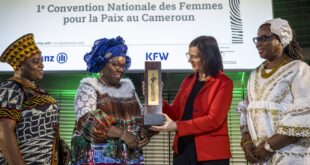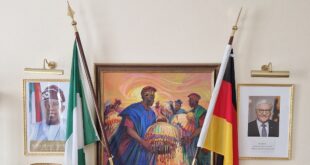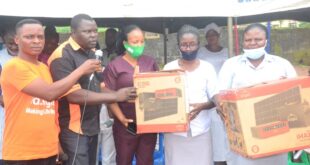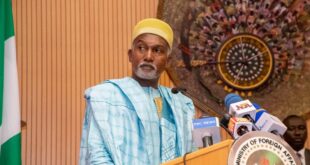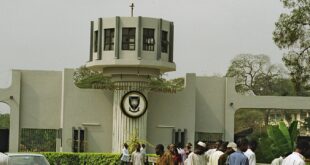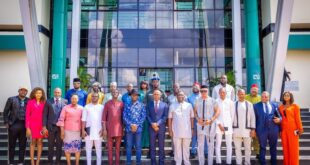The German Award for Sustainability Projects 2023 was presented recently at a colourful ceremony in Berlin.
The annual award promotes a greater awareness of the 17 Sustainable Development Goals (SDGs) of the United Nations in the social, economic and environmental fields as well as efforts to attain the goals.
This year again, big and small companies and non-governmental organisations were honoured for implementing special projects – regardless of whether on a small or large scale – that challenge the status quo and point the way to a new, sustainable future.
Depending on the category/number of projects submitted, up to two other prize winners were chosen in addition to the first place. In total, the jury awarded 69 companies and organisations in 31 categories for their sustainability projects.
The award was presented to the recipients on 6 June 2023 by the German Institute for Service Quality in cooperation with the news channel ntv and the DUP Unternehmer at a festive ceremony under the patronage of Brigitte Zypries, former Federal Minister of Economics and Technology.
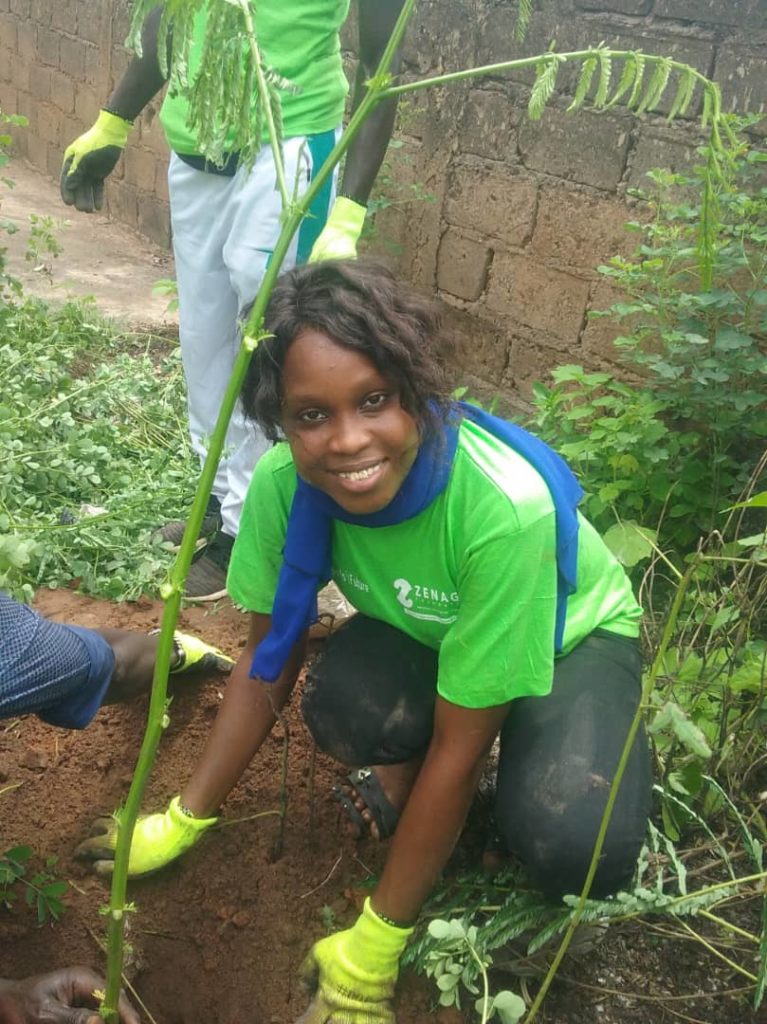
Under the ‘Green Schools’ project, fruit trees are planted in the schools’ premises, solar electricity is provided and sports activities are promoted. The three project components are combined in such a way that they bring benefits for the environment and create a greater awareness for sustainability
/Photo: Zenaga Foundation
The recipients range from big companies, such as Audi and Aldi Süd, to prominent and lesser-known NGOs.
One of the awardees is the Zenaga Foundation, which received the 1st prize in the category of “Nonprofit Initiatives” for its ‘Green Schools’ project in Nigeria and Senegal.
The jury judged the project as having a strong impact for combining climate protection, education and sports.
“Due to its many participants and measures, the degree of impact is high and the project supports on many levels a good combination of climate protection and education,” the jury said in the citation.
The project combines climate protection, education and sport in a special way to create a sustainability project for people on the ground in Nigeria and Senegal.
Among the goals achieved so far are the planting of 32,000 fruit tree seedlings, the construction of 40 green schools and 900 solar systems and lamps while about 140,000 people have benefited from the project so far, according to Zenaga Foundation.
“The implementation of the projects was only possible through the good cooperation with other NGOs such as Sports for Future., Zenaga Foundation Senegal (Mahamadou Lamine Barro), Green Actions Senegal, Foret International as well as the African Centre For Environment Agriculture and Rural Development. Equally important was and is the financial support of private individuals and companies,” the Foundation says.
Kai Zimmermann, founder/director of Zenaga Foundation gGmbH, said the aim of his organisation is “to give all people access to clean energy and an intact environment” in order to improve the quality of their lives.
And truly, energy poverty is the main challenge to alleviating poverty in most African countries. Paradoxically, the continent is rich in renewable energy resources – wind, sun and biomass. Hence, the solution to poverty lies in a creative application of sustainability strategies.
Zimmermann, who is a Climate Reality Leader and EU Climate Pact Ambassador, said his organisation is committed to Africa in the long-term and looks forward to expanding its ‘Green Schools’ project to more countries in the continent.
Femi Awoniyi
More information about Zenaga Foundation at https://zenaga.de/
 THE AFRICAN COURIER. Reporting Africa and its Diaspora! The African Courier is an international magazine published in Germany to report on Africa and the Diaspora African experience. The first issue of the bimonthly magazine appeared on the newsstands on 15 February 1998. The African Courier is a communication forum for European-African political, economic and cultural exchanges, and a voice for Africa in Europe.
THE AFRICAN COURIER. Reporting Africa and its Diaspora! The African Courier is an international magazine published in Germany to report on Africa and the Diaspora African experience. The first issue of the bimonthly magazine appeared on the newsstands on 15 February 1998. The African Courier is a communication forum for European-African political, economic and cultural exchanges, and a voice for Africa in Europe.










